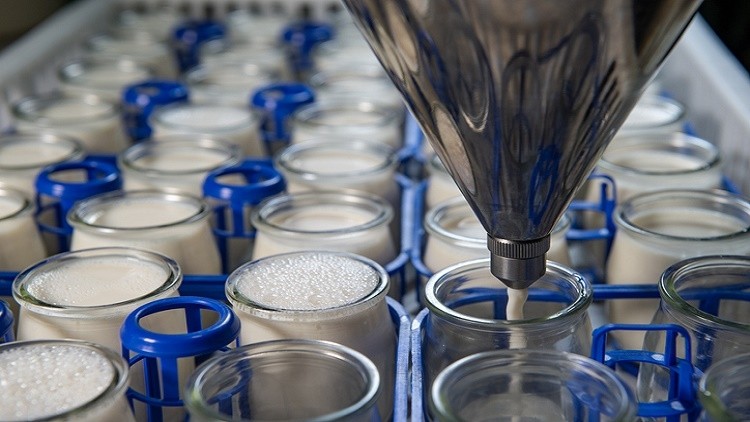Learn about brain health and nootropics to boost brain function
Probiotic from Penang: Malaysian cow’s milk bacteria strain exerts benefits for brain, URT, and liver


The probiotic strain, L. plantarum DR7, was discovered during a collaboration between Clinical Nutrition Sdn Bhd and University Sains Malaysia in 2014.
A number of human studies to examine its effect on the brain, upper respiratory tract infection, and gut began last year.
Just in September this year, Spanish firm AB Biotics acquired the exclusive global licensing of the strain.
At the Probiota Asia summit organised by NutraIngredients-Asia, Min-Tze Liong, professor at the school of industrial technology at University Sains Malaysia, spoke in detail about the findings and the biochemistry mechanisms involved.
Enhancing the serotonin pathway
DR7 was found to reduce stress and anxiety by enhancing the serotonin pathway.
The strain was administered for 12 weeks in a double blind, placebo-controlled, and randomised human clinical trial involving 111 subjects with moderate stress.
The treatment group had to consume 109 CFU of DR7 probiotics per day.
Similar to previous animal model studies conducted, the strain was able to increase the level of serotonin, commonly referred as the “happy chemical”.
The strain worked by increasing the expression of TPH, the enzyme responsible for converting tryptophan into serotonin, while reducing the expression of the enzyme IDO, which converts tryptophan into kynurenine.
Kynurenine has been shown to increase in numbers in the blood levels of gene expression in adults who are stressed and depressed.
In addition, the team also saw a slight prevention of conversion in dopamine in the human study, an observation which was not seen in the animal model.
“We thus believe that DR7 may also have an effect along the dopamine pathway, we will need further concrete evidence on that. But for serotonin, the effect was quite clear,” Liong said.
Effects on neurodegeneration
Another human clinical trial of 111 subjects also showed that DR7 could potentially manage neurodegeneration diseases, such as Alzheimer’s disease, by reducing inflammation.
Liong pointed out the strain was able to reduce pro inflammatory cytokines, such as TNF-alpha.
At the same time, the strain also increases anti-inflammatory cytokines, such as IL-10 and IL-4, as compared to the placebo group.
On the other hand, the strain had shown to improve memory and cognitive functions in the treatment group.
Using a computerised COGSTATE brief battery test, Liong said there were significant differences between the treatment and placebo group along the parameters of verbal learning and memory, and social emotional cognition.
Till date, AB-Biotics has commercialised the DR7 strain as a probiotics for brain health under the brand AB-MIND.
URTI
In addition to cognitive benefits, the DR7 strain had also shown improvements in upper respiratory tract by enhancing immune and anti-inflammatory factors.
A human clinical trial involving 109 subjects aged 18 to 60 was conducted during the monsoon season in Malaysia last year.
The treatment group had to consume 109 CFU of DR7 probiotics per day for 12 weeks.
The subjects’ health status was then assessed via questionnaires. Blood samples were also collected to find out the cytokine concentrations, peroxidation and oxidative stress, and gene expression in T cells and natural killer (NK) cells.
The trial showed that DR7 could reduce the duration of nasal symptoms, after 12 weeks, with a mean difference of 5.09 days between the treatment and placebo group.
As for the mechanisms, Liong pointed out that the strain had decreased pro-inflammatory cytokines, such as IFN-gamma and TNF-alpha in middle-aged adults aged 30 to 60 years old.
It also increased anti-inflammatory cytokines, including IL-4 and IL-10 in adults below 30 years old.
With this, there is a reduction in the plasma peroxidation TBA levels and anti-oxidative FRAP levels.
This in turn enhances mucosal epithelial integrity, leading to reduced infiltration of antigen.
On the other hand, the strain has shown to inhibit respiratory related pathogens, such as S. aureus and S. pneumoniae.
Liver health
Based on previous animal studies, the researchers found that the strain is also able to enhance lipid metabolism, thus benefiting liver and cardiovascular health.
The strain was able to do so via multiple ways.
For example, it was able to reduce cholesterol accumulation by activating AMP-activated protein kinase (AMPK) – which when activated, can downregulate the expression of HMG-CoA reductase.
This in turn reduce the biosynthesis of cholesterol, since HMG-CoA reductase catalyses the conversion of HMG-CoA (a precursor of cholesterol) to mevalonic acid – a necessary step in the biosynthesis of cholesterol.
Sources:
Benef Microbes, Apr 2019
Lactobacillus plantarum DR7 alleviates stress and anxiety in adults: a randomised, double-blind, placebo-controlled study.
DOI: 10.3920/BM2018.0135
Authors: HX Chong and et al
Journal of Dairy Science
Lactobacillus plantarum DR7 improved URTI via enhancing immune and inflammatory parameters: A randomized, double-blind, placebo-controlled study
DOI: 10.3168/jds.2018-16103
Authors: HX Chong and et al
Korean Journal of Food Science
Lactobacillus plantarum DR7 reduces cholesterol via phosphorylation of AMPK that down-regulated the mRNA expression of HMG-CoA reductase
DOI: 10.5851/kosfa.2018.38.2.350
Authors: Lee-Ching Lew and et al
Click here to view full article